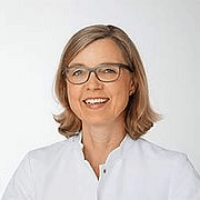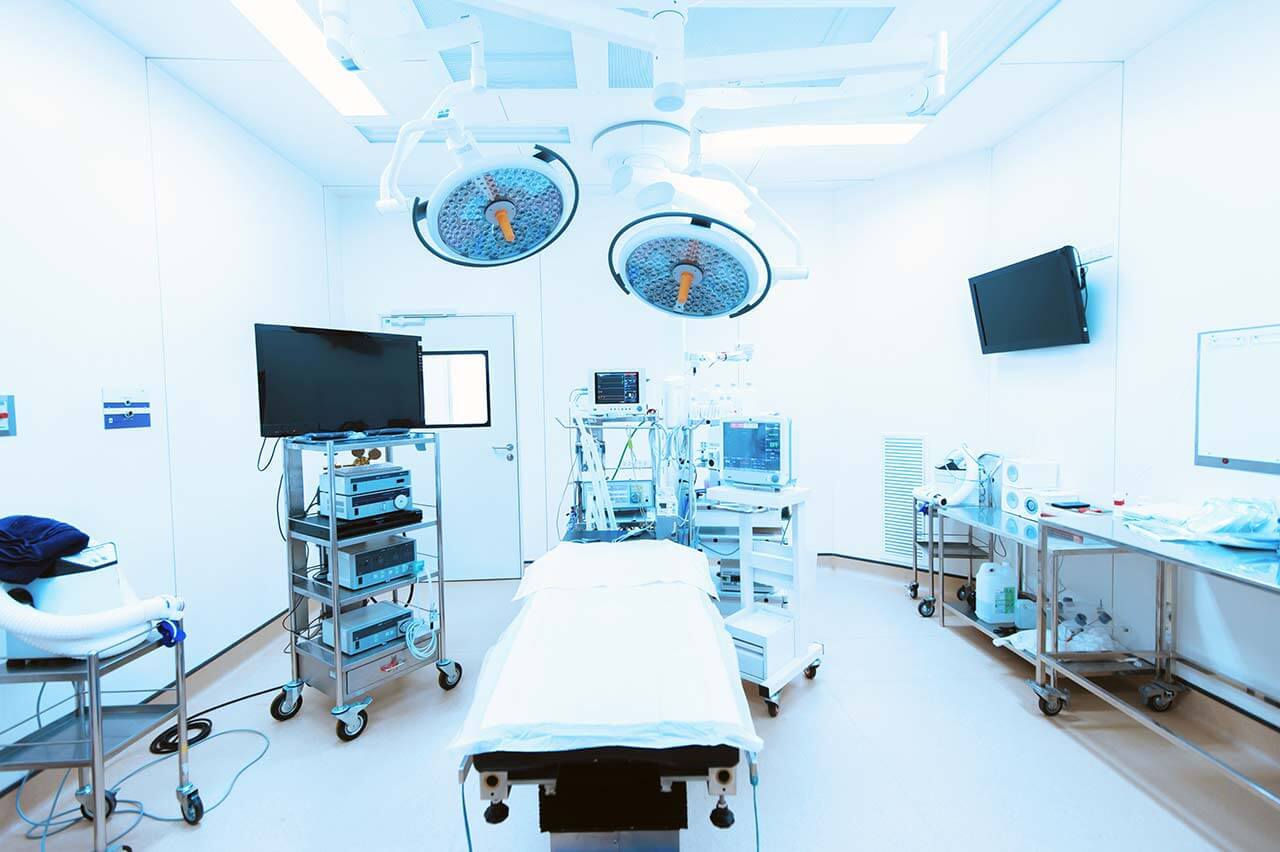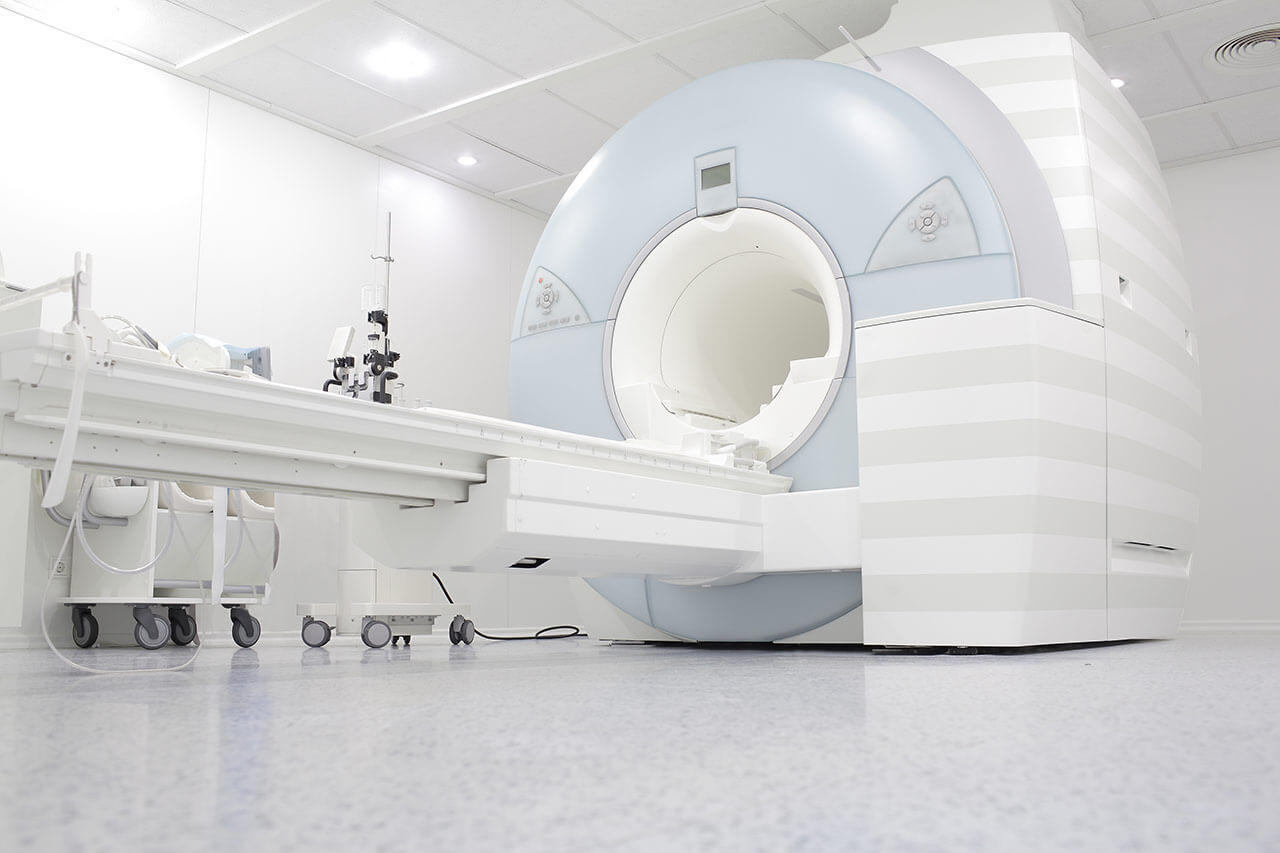
The program includes:
- Initial presentation in the clinic
- clinical history taking
- review of medical records
- physical examination
- laboratory tests:
- complete blood count
- biochemical blood test
- inflammation markers (CRP, ESR)
- blood coagulation analysis (aPTT, PT, INR)
- neurological examination
- electrophysiology study (if indicated clinically)
- CT/MRI scan
(if indicated clinically, additional cost is 650/1200€) - differential diagnosis with other neurological diseases
- nursing services
- consultation of related specialists
- treatment by chief physician and all leading experts
- explanation of individual treatment plan
Required documents
- Medical records
- MRI/CT scan (if available)
Service
You may also book:
 BookingHealth Price from:
BookingHealth Price from:
About the department
The Department of Pediatric Neurology at the ATOS Clinic Heidelberg offers the full range of medical services for young patients with diseases of the central and peripheral nervous system. The department specializes in the diagnosis and treatment of epilepsy, chronic headaches, developmental disorders, Down syndrome, cerebral palsy, inflammatory diseases of the nervous system, febrile seizures, hydrocephalus, brain tumors, traumatic brain injuries, and other neurological pathologies in children. The doctors of the department pay great attention to a comprehensive examination of the child and devote time to communication with the children and their parents, which contributes to the formation of trusting relationships. Treatment includes conservative methods with proven effectiveness. Pediatric neurologists work in strict accordance with current clinical protocols and recommendations of professional neurological societies, which contributes to the achievement of good therapeutic results. The department cares about the comfort of young patients, so there are toys, children's books, and other things to distract the child from the therapeutic process. The Head Physician of the department is Dr. med. Cornelia Bussmann.
The priority area of work of the department's pediatric neurologists is the treatment of epilepsy. The pathology is chronic, and its main manifestation is seizures of varying intensity. Before making a diagnosis, the department's doctors conduct a comprehensive examination, including a study of the child's medical history, an assessment of the neurological status, and instrumental diagnostics (encephalography, 24-hour EEG monitoring, brain CT and/or MRI, and electrocardiography to exclude cardiovascular problems that may be the cause of seizures). The first-line treatment for epilepsy is drug therapy with anticonvulsants. Usually one drug is prescribed for a child. In rare cases, a combination of drugs may be needed. Systematic use of the prescribed medication and compliance with the dosage prescribed by the doctor play an important role in the success of treatment. In addition to drug treatment, a ketogenic diet and a daily routine that ensures a full night's sleep of at least 8 hours are recommended.
The department regularly admits young patients with chronic headaches such as migraines, tension headaches, headaches associated with infectious diseases, etc. In the diagnostic phase, the doctors of the department perform a physical examination, determine the frequency and intensity of the headaches, and in some cases a CT or MRI scan is necessary. Treatment is based on taking analgesics, changing lifestyle (normalizing sleep patterns and changing diet: avoiding caffeinated drinks, sweets, and fast food), eliminating stressful situations, regular moderate physical activity, etc.
The department's team of doctors also has successful experience in the treatment of inflammatory diseases of the central nervous system, the most common of which are multiple sclerosis and acute disseminated encephalomyelitis. Multiple sclerosis is a chronic disease that causes progressive damage to the myelin sheath of cells in the brain and spinal cord. In childhood, multiple sclerosis is characterized by a slow progression. Moreover, severe disability due to pathology occurs at a relatively young age, which is explained by the early onset of the disease. The main symptoms of multiple sclerosis in children are general weakness and fatigue, gait disturbances, visual disturbances, sensory disturbances (tingling or numbness), and muscle spasms. Bladder and bowel control are often impaired. The "gold standard" for diagnosing multiple sclerosis is magnetic resonance imaging. This imaging test makes it possible to identify even the smallest foci of demyelination, including new ones, which allows the department's physicians to objectively assess the dynamics of the disease progression. In addition, the diagnostic protocol includes blood and urine tests, a cerebrospinal fluid analysis, and the recording of evoked potentials. Today, multiple sclerosis is an incurable disease, so the goal of therapy is to alleviate symptoms, reduce the number of exacerbations, prevent disability, and ensure a high quality of life. The main weapon in the fight against multiple sclerosis in children is drug treatment. If clinically indicated, plasmapheresis and/or intravenous administration of immunoglobulins can also be done.
The department's range of medical services includes the following options:
- Diagnostics and treatment of epilepsy
- Diagnostics and treatment of developmental disorders
- Diagnostics and treatment of chronic headaches
- Diagnostics and treatment of motor disorders of neurological origin
- Diagnostics and treatment of Down syndrome
- Diagnostics and treatment of cerebral palsy
- Diagnostics and treatment of inflammatory diseases of the central nervous system: multiple sclerosis and acute disseminated encephalomyelitis
- Diagnostics and treatment of febrile seizures
- Diagnostics and treatment of hereditary neuropathies
- Diagnostics and treatment of brain malformations
- Diagnostics and treatment of spina bifida
- Diagnostics and treatment of brain tumors
- Diagnostics and treatment of hydrocephalus
- Diagnostics and treatment of Duchenne muscular dystrophy
- Diagnostics and treatment of neurodegenerative diseases
- Diagnostics and treatment of neuromuscular diseases
- Diagnostics and treatment of traumatic brain injuries
- Diagnostics and treatment of spinal muscular atrophy
- Diagnostics and treatment of tic disorders
- Diagnostics and treatment of other neurological diseases in children
The department offers the following diagnostic and therapeutic services:
- Diagnostic options
- Electroencephalography, video electroencephalography (during sleep and wakefulness)
- Neurophysiological studies
- Electroneuromyography
- Electromyography
- Registration of evoked potentials: SSEP, SEP, VEP
- Cognitive assessment tests
- Psychological testing
- Computed tomography and magnetic resonance imaging (in collaboration with partner clinics)
- Therapeutic options
- Drug therapy: pills, infusions, and injections
- Physiotherapy
- Therapeutic exercise
- Massage
- Other diagnostic and treatment methods
Curriculum vitae
Higher Education
- 1989 - 1996 Medical studies, Christian Albrecht University of Kiel and Ruprecht Karl University of Heidelberg.
- 1994 Internship, Paris Descartes University (Paris) and McGill University (Montreal).
- 1998 Admission to medical practice; thesis defense on the subject: "Impairments of water and electrolyte balance in children with intracranial diseases."
Professional Career
- 1997 - 2004 Residency, University Hospital Heidelberg.
- 2004 Board certification in Pediatric and Adolescent Medicine.
- 2007 Specialization in Pediatric Neurology.
- 2009 - 2015 Senior Physician, Department of Pediatric Neurology, University Hospital Heidelberg.
- 2014 - 2015 Head of the Social Pediatric Center, Department of Pediatric and Adolescent Medicine, University Hospital Heidelberg.
- Since 10.2015 Head Physician, Department of Pediatric Neurology, ATOS Clinic Heidelberg.
Additional Qualifications
- Certificate of the German Society for Clinical Neurophysiology (DGKN).
- "Epileptology plus" Certificate of the German Society for Epileptology (DGfE).
- Social Pediatric Center Management Certificate (DGSPJ).
- Certificate of the European Epilepsy Academy (EUREPA).
- Travel Medicine Certificate (DTG).
Memberships in Professional Societies
- Neuropediatric Society (GNP).
- German Society for Epileptology (DGfE).
- German Society for Pediatric and Adolescent Medicine (DGKJ).
- German Society for Clinical Neurophysiology (DGKN).
- German Society for Muscular Diseases (DGM).
Photo of the doctor: (c) ATOS Klinik Heidelberg
About hospital
The ATOS Clinic Heidelberg is a reputable medical complex with high standards of patient care. The clinic was founded in 1991. Since then, it has taken a leading position in the European medical arena in the treatment of diseases of the musculoskeletal system and many other pathologies. The clinic has a highly professional team of doctors, many of whom are world-renowned professors. Specialists work with state-of-the-art equipment. They use classical and innovative treatment methods with high efficiency. Personalized medical care is a priority in the clinic: doctors carefully study each clinical case and develop individual diagnosis and treatment regimens, taking into account each patient's needs and wishes. Patients not only from Germany but also from other countries of the world regularly seek medical help from the clinic, which indicates the outstanding quality of medical services and the high level of trust patients have in the specialists of the ATOS Clinic Heidelberg.
In addition to providing top-notch medical care, the clinic is distinguished by its modern design. When a patient crosses the threshold of the clinic, he or she has the impression that he or she is not in a medical facility but in a luxury hotel. This idea is part of the clinic's working concept because the patient's comfort and psychological state play an important role in achieving successful treatment outcomes. The clinic offers cozy rest areas where patients can distract themselves from the therapeutic process and socialize. It goes without saying that the equipment in the diagnostic, treatment, and operating rooms is of a very high standard, which enables effective and safe treatment.
Patient care is important throughout the therapeutic process. The nursing staff treats each patient's life situation with respect and compassion and surrounds him or her with care. The doctors are focused on the best results, are always open to communication with the patient, and are happy to answer any questions.
More than 96% of patients rate their treatment experience and the quality of medical care at the ATOS Clinic Heidelberg positively.
It should be noted that the clinic is recognized as one of the best in the country in the field of foot surgery, hand surgery, hip, knee, and shoulder surgery, as well as in the field of spine surgery and aesthetic plastic surgery, according to the rating of Focus magazine.
Photo: (с) depositphotos
Accommodation in hospital
Patients rooms
The patients of the ATOS Clinic Heidelberg stay in single and double rooms. The clinic also offers accommodation in enhanced-comfort patient rooms. The patient rooms are made in light colors and modern design to create a comfortable and cozy atmosphere during the patient's stay in the hospital. The standard rooms are equipped with an automatically adjustable bed, a bedside table, a TV, a telephone, and air conditioning. The rooms have Wi-Fi access. Enhanced-comfort patient rooms are additionally equipped with upholstered furniture, a safe, and a mini-bar.
Meals and Menus
The clinic offers delicious and varied meals three times a day: breakfast is served as a buffet, lunch offers a choice of three set menus, and dinner also offers a choice of several set menus. The menu is mainly European cuisine. If, for some reason, you cannot eat all the foods on the menu, you will be offered an individual menu. Please inform the medical staff about your dietary preferences prior to the treatment.
The clinic also has a cozy cafe with a wide range of hot and cold drinks, cakes, snacks, sandwiches, salads, and hot dishes.
Further details
Standard rooms include:
![]() Toilet
Toilet
![]() Shower
Shower
![]() Wi-Fi
Wi-Fi
![]() TV
TV
Accompanying person
Your accompanying person may stay with you in your patient room or at the hotel of your choice during the inpatient program.
Hotel
You may stay at the hotel of your choice during the outpatient program. Our managers will support you for selecting the best option.




